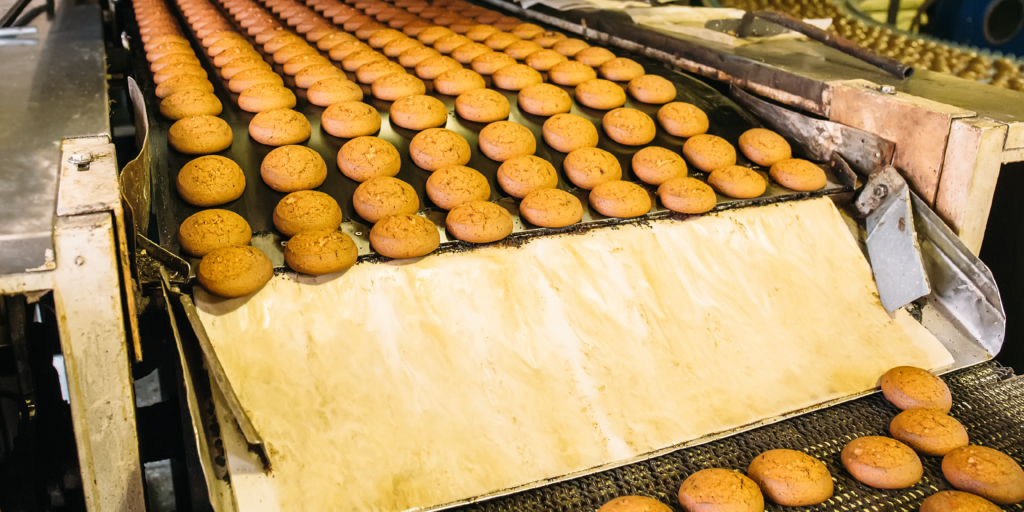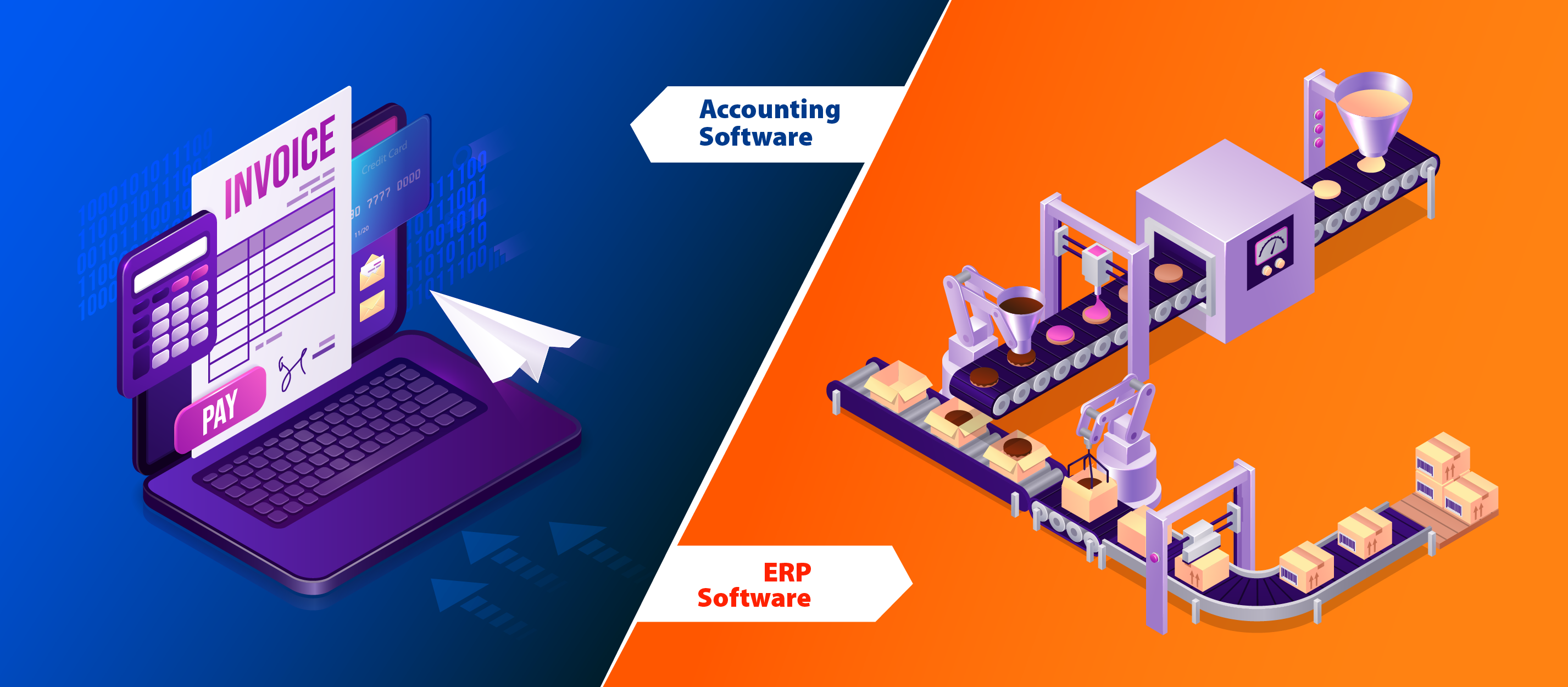
Any organization, irrespective of its size, scope, and the nature of its business, strives to improve productivity and increase efficiency.
These, in fact, along with achieving growth, are the ongoing goals of any organization, and the reasons of its existence.
Manufacturing businesses are no different in this regard, as increasing efficiency and productivity are primary objectives for them as well.
The key areas they can work upon to achieve these objectives are adoption of a streamlined approach, automation, and smart business processes.
Introduction of automation and smart processes automatically contributes to increased efficiency and improved productivity.
It allows the manufacturing businesses to minimize their dependency on manual input, and to maximize the time available for manufacturing products.
Food manufacturing businesses are no exception
Just like for any other manufacturing business, increasing efficiency and productivity continually is essential for the food manufacturing businesses too.
Well, truth be told, the food manufacturing businesses find it more important than others, and there are many reasons for it.
First and foremost, the food manufacturing industry is highly
regulated, and quality and safety of products are non-negotiable elements for the food manufacturers.
This calls for having specific capabilities to ensure regulatory compliance, and Quality Control. Then there are the other challenges.
The operating costs are humongous, margins are razor thin, risks are high, and competition is fierce.
Smooth conduct of operations at the plant floor, which requires proper planning & scheduling, and other capabilities such as production, packaging, labelling, traceability, etc., is another challenge to overcome.

So, what do the food manufacturers do?
Food manufacturers turn to enterprise resource planning (ERP) solutions to improve their productivity and increase their efficiency.
What a food ERP software can predominantly do is that it can simplify and streamline all of business operations, reduce complexity, and subsequently improve manufacturing productivity.
A good food manufacturing software is highly effective in increasing productivity and efficiency, as it allows the employees working in a food manufacturing company to operate at a much more efficient level.
It links the different departments together with the access of real-time data to all, thus bringing all the stakeholders on the same page.
Even the numbers substantiate this claim. Sample this:
- After ERP implementation, 49% of manufacturing companies said they improved all business processes.
- The top three business goals cited for implementation are achieving cost savings (46%), improving performance metrics (46%) and improved efficiencies in business transactions (40%).
- Around 95% of companies have experienced significant improvements in their workflow after adopting ERP software.
Now let’s understand how a food manufacturing ERP system can help food manufacturing businesses increase efficiency and productivity:
Increases automation to bring down errors and maximize time:
An ERP system allows automation of manual and repetitive processes, which in turn saves time by eliminating manual tasks.
For ex: By eliminating manual data entry, food manufacturers not only can ensure data accuracy, but also increase efficiency and productivity by using the time taken to fix avoidable mistakes elsewhere, on more important tasks.
Streamlines workflow to remove operational bottlenecks:
An ERP helps food manufacturers simplify the complex processes by giving an opportunity to assess the existing workflows, and get rid of any redundancy, inefficiency or any other thing that hampers productivity or causes a bottleneck for their operations.
The end result is increased efficiency and productivity.
Optimizes inventory to manage production accurately and efficiently:
Managing the inventory in the best possible manner is the key to any food manufacturing business’ productivity and efficiency.
Instances of over-stocking or understocking affect the organization.
But an ERP can forecast based on historical data, reorder inventory, and even track its usage, alerting when its nearing end, and even suggesting alternative solutions in case of poor quality.
Prevents recalls with improved Quality Control:
A food ERP software prevents the recall situations through a robust Quality Control functionality, which tracks production lots and quality test results and ensures only products that adhere to the set standards get released.
This results in savings on time, energy, and resources, which would otherwise be spent on managing recalls, and thus affects efficiency in a positive way.
Minimizes asset downtime and keeps production going:
In food manufacturing businesses, machines and equipment play critical role in development and packaging of different types of products.
Not only does a machine breakdown put a dent in productivity, but also impacts the quality of foods.
A food ERP helps put a preventative maintenance strategy in place, thus minimizing the asset downtime, and ensuring the production is up and running faster.
Streamlines supplier communication and improves response times:
A food ERP software ensures the manufacturers only deal with the verified suppliers; whose raw materials can be trusted.
Moreover, it helps improve productivity by improving communication with the key suppliers, and vendors.
Access to real-time data gives visibility into supply chain, allowing manufacturers to discuss shortages or other issues with suppliers, and keeping the supply chain efficient.
Facilitates capacity planning:
A food ERP solution also facilitates capacity planning, i.e., the process of managing the production capacity required to meet the order requirements.
This involves knowledge of resources at disposal to meet future production requirements.
ERP ensures that the food manufacturers are well placed to meet growth demands, and thus are productive and efficient in the long run.
Conclusion
We saw above how a food ERP system helps food manufacturing businesses increase their efficiency and productivity.
If you are into a food and beverage manufacturing business, and looking for ways to improve your business’ productivity and efficiency levels, consider BatchMaster food manufacturing ERP system for your business.
We have been serving food and other process manufacturing industries successfully for over 30 years now, and our approach of focusing on “micro-verticals” within the broader vertical market categories makes us stand out.
So, if you are into manufacturing of seafood, bakery, meat & poultry, dairy, packaged food, organic food, fresh produce, chocolates, sweets, candy & confectionery, edible oil, beer, etc. products, contact us to schedule a demo today, or to learn more about how BatchMaster can help you increase efficiency and productivity across your business.



















